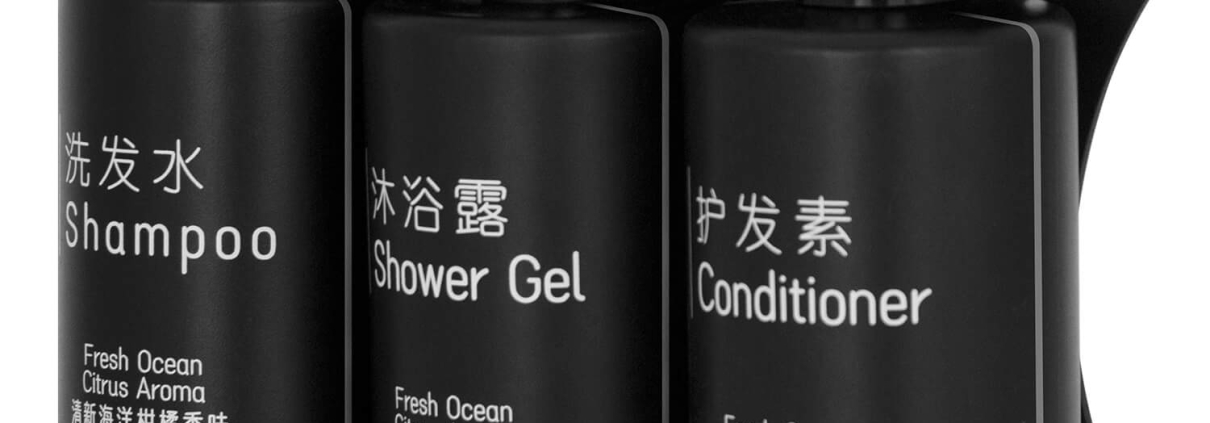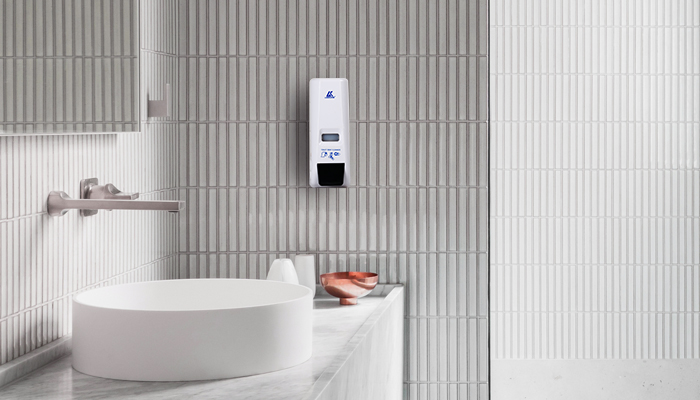The relentless news cycle surrounding the Israel-Hamas war understandably focuses on immense human suffering and geopolitical turmoil. Yet, for manufacturers like us at Leekong, specializing in the often-overlooked world of hotel amenities, such global events send powerful ripples through intricate supply chains and reshape hospitality priorities. While seemingly distant, the conflict does impact the demand for products like our core offerings: soap dispenser systems. Understanding this connection is key to navigating uncertainty and emerging stronger. Here’s how the landscape is shifting and how Leekong can not only adapt but thrive:
- Supply Chain Squeeze & Cost Pressures:
The war exacerbates existing global supply chain fragility. Heightened tensions in the Middle East disrupt key shipping lanes (like the Red Sea), increase insurance costs, and cause fuel price volatility. For hoteliers, this translates into:
- Higher Costs:Importing bulk liquid soap, plastic components for dispensers, or even finished units becomes more expensive.
- Delays:Unpredictable shipping routes lead to inventory shortages, forcing hotels to scramble.
- Focus on Localization:Hotels and procurement groups seek regional suppliers to mitigate these risks. Leekong’s Opportunity:Highlight our robust, potentially localized (or multi-sourced) manufacturing capabilities. Emphasize reliable lead times and transparent supply chain management as a core competitive advantage. Offer bulk purchasing or long-term contracts with price stability clauses.
- The Amplified Cry for Sustainability & Cost Efficiency:
Economic uncertainty, coupled with a never-diminishing focus on ESG (Environmental, Social, Governance), makes operational efficiency paramount. Single-use miniature bottles are increasingly seen as wasteful and The war’s economic fallout accelerates the shift towards solutions that cut costs and environmental impact simultaneously.
- Refillable Reigns Supreme:Refillable, bulk-fill soap dispenserand shampoo systems are no longer just “nice-to-have”; they are essential cost-saving and sustainability tools. Hotels need systems that minimize product waste, reduce plastic consumption, and slash the frequency (and cost) of replenishment.
- Durability is Investment:In times of tight budgets, hotels prioritize long-lasting equipment over cheap, replaceable items. Leekong’s Opportunity:Double down on our refillable systems. Showcase the undeniable ROI: calculate the savings per room per year compared to miniatures. Emphasize the durability and longevity of our wall-mounted dispensers – they are built to last decades, not years. Promote ease of refill with large-capacity reservoirs to reduce staff time. Integrate sustainability metrics directly into our sales pitches.
- Operational Resilience & Hygiene Non-Negotiables:
Hotels face staffing challenges and need streamlined operations. Amenity systems must be simple, reliable, and hygienic. Guests also remain highly conscious of cleanliness.
- Wall-Mounted Efficiency:Wall-mounteddispensers in showers (for shampoo, conditioner, body wash) and by sinks (for soap) prevent counter clutter, are easier for housekeeping to clean around, and are less prone to damage or theft than countertop units. They represent operational efficiency.
- Hygienic Design:Touchless options gain appeal, but even manual soap dispenserunits must prioritize designs that prevent germ buildup and are easy to sanitize. Leekong’s Opportunity: Innovate and promote the operational benefits of our wall-mounted systems: easier cleaning, reduced maintenance, space-saving. Ensure all designs (touchless or manual) feature hygienic materials (antimicrobial additives?) and easy-to-clean surfaces. Offer training materials for housekeeping on proper cleaning procedures.
- Shifting Guest Expectations & Brand Values:
Guests are increasingly aware and critical. They seek brands aligned with their values, including sustainability and social responsibility. A hotel’s choice of amenities sends a signal.
- Visible Sustainability: A high-quality refillablesoap dispensersystem is a tangible demonstration of a hotel’s commitment to reducing waste. Guests appreciate this.
- Quality Perception:A sleek, durable, well-functioning dispenser conveys quality and care, enhancing the guest experience far more than a flimsy miniature bottle. Leekong’s Opportunity:Position our products as enablers of the hotel’s brand story. Help hotels communicate their sustainability efforts through our dispensers (e.g., “Each refill saves X plastic bottles”). Focus on elegant, robust design that elevates the bathroom aesthetic. Provide hotels with co-branded sustainability messaging.
- The Innovation Imperative:
Standing still is not an option. The challenges presented by global events demand proactive solutions.
- Smart Dispensers:Explore integrating simple IoT sensors to alert housekeeping or management when a soap dispenseror shampoo reservoir is low, optimizing refill routes and preventing empty units.
- Ultra-Concentrates & Partnerships:Develop or partner with suppliers of ultra-concentrated soaps and shampoos, drastically reducing shipping volume and weight (lower costs, lower carbon footprint) for the bulk product used in refillablesystems.
- Circular Economy:Investigate take-back programs for end-of-life dispensers for recycling or refurbishment, closing the loop. Leekong’s Opportunity:Dedicate R&D resources to these areas. Position Leekong as a thought leader and solution provider, not just a hardware vendor. Pilot new technologies and communicate our commitment to continuous improvement.
How Leekong Can Be the Solution & Thrive:
- Champion Refillables Relentlessly:Make the refillable, wall-mounted dispenser the hero of our product line and marketing. Quantify the savings (cost and plastic).
- Build Fortified Supply Chains:Diversify sourcing, strengthen relationships with key suppliers, invest in buffer stock strategically, and communicate reliability as a core strength.
- Innovate for Value:Focus R&D on durability, ease of use (refilling, cleaning), hygiene features, and potential smart integrations that solve real hotel pain points.
- Embrace Sustainability as Strategy:Weave sustainability into every aspect – materials, manufacturing, product lifecycle, partnerships. Certify it.
- Educate & Partner:Don’t just sell dispensers; sell a solution. Provide hotels with data, case studies, and tools to justify the shift internally and market it to guests.
- Highlight Durability & Design:Market our products as long-term investments that enhance the guest experience and withstand the rigors of daily hotel use.
Conclusion:
The Israel-Hamas war is a stark reminder of our interconnected world and the vulnerability of global systems. For the hotel industry and manufacturers like Leekong, it amplifies existing challenges around cost, supply chains, and sustainability. However, within these challenges lie significant opportunities. By doubling down on the inherent advantages of refillable, wall-mounted soap dispenser and shampoo systems – their cost efficiency, sustainability credentials, operational benefits, and positive guest perception – Leekong can position itself as an indispensable partner. By focusing on resilience, innovation, and genuine value, we can help hotels navigate uncertainty and emerge stronger, proving that even in turbulent times, smart, sustainable solutions are the path forward. Let’s not just adapt; let’s lead the evolution of hotel amenities.




